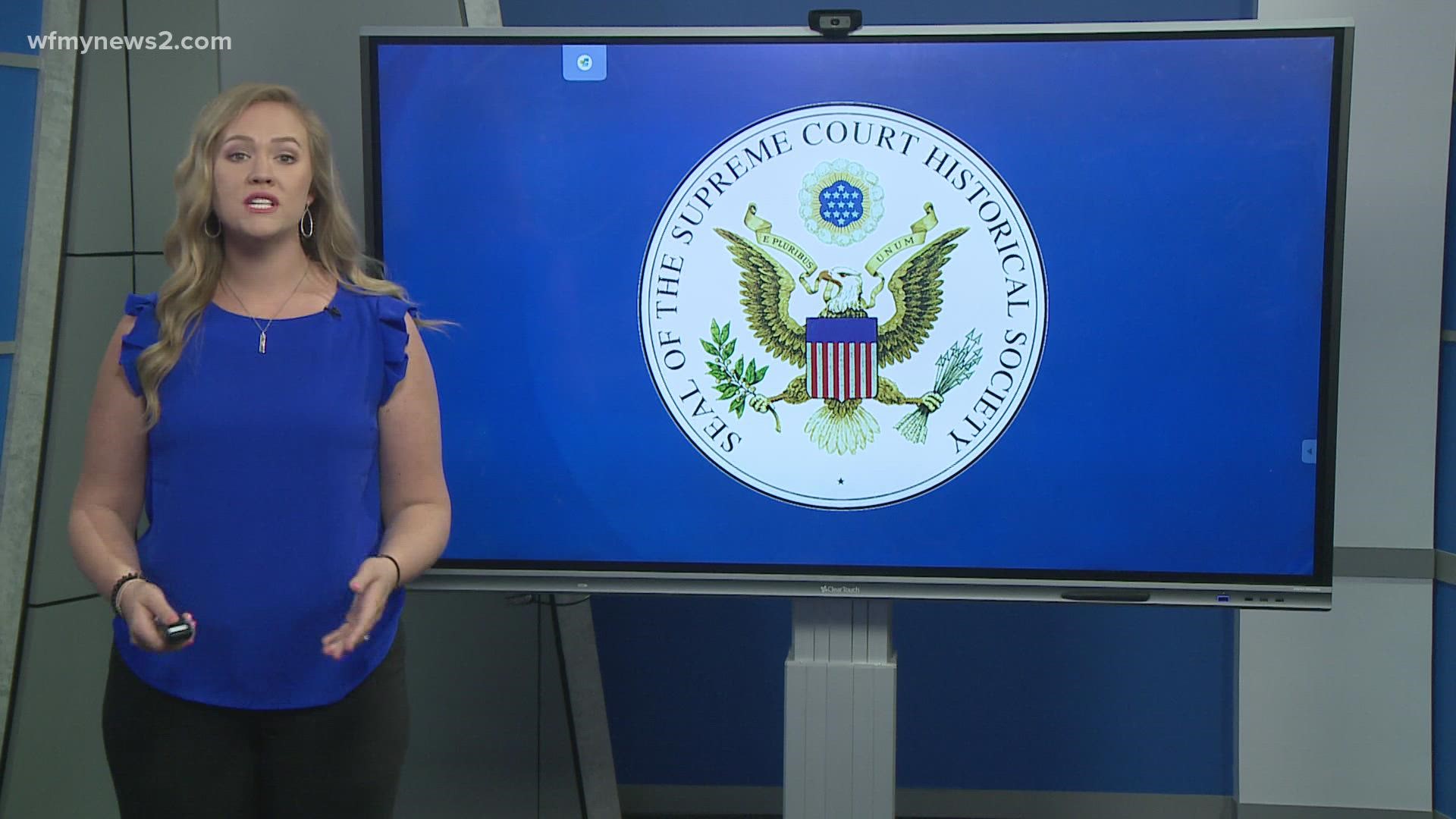GREENSBORO, N.C. — Remember that until the court hands down an official ruling, abortion rights are still federally protected.
There are lots of questions about what would happen if the Supreme Court does overturn Roe versus Wade.
We heard from lawmakers and talked to experts to find the answers.
Sources:
- Our sources for this are the Wake Forest University School of Law
- 2 Supreme Court cases
- 2 U.S. Senators
- Lexis Nexis
Question 1:
Could Congress pass a federal law protecting abortion rights and supersede the Supreme Court?
Senate Majority Leader Chuck Schumer said he will hold a vote on a bill to secure abortion rights nationwide.
"A vote on this legislation is not an abstract exercise. This is as urgent and real as it gets," he said.
Question 2:
Would this bill supersede a Roe v. Wade reversal?
An Associate Professor at Wake Forest University law says, yes.
"To codify it which means past the statute which put it in the books and then judges are constraint by that statute," said Marie-Amélie George.
Question 3:
Does the idea have the votes?
It isn't likely to reach the 60 needed to overcome the Senate filibuster, something Senate Minority Leader Mitch Mcconnell says he will keep in place.
"We went through that exercise a couple of months ago. I said it was the most important day in the history of the senate as the institution, and that remains the case. And as far as I am concerned if we are in the majority, it will remain the case in perpetuity," he said.
Question 4:
If overturned, could it impact a woman's ability to get birth control?
Let's look back before Roe v. Wade ever happened.
A 1965 case called Griswold versus Connecticut.
The Supreme Court ruled states couldn't prohibit the prescription, sale, or use of contraceptives.
Similar to Roe, the Court cited the constitutional "right to privacy" to make its argument.
One year before Roe, the supreme court made another ruling on birth control.
Eisenstadt versus Baird said states couldn't ban contraceptives for unmarried individuals.
Both cases establish a precedent that states can't outright ban birth control.
There are still lots of unanswered questions about what *could* happen.
But it's important to remember, that the court has not made a final decision.

